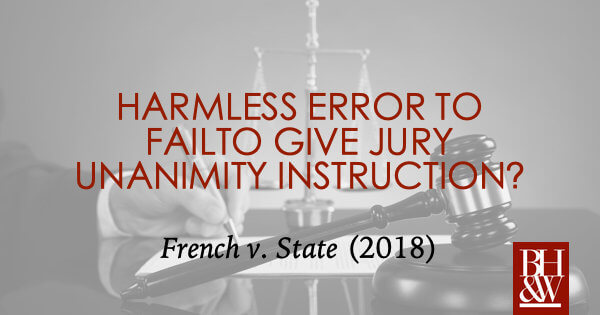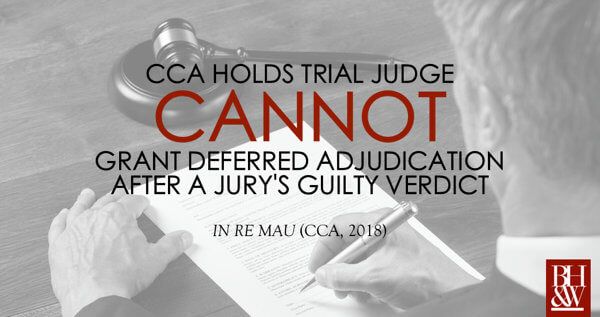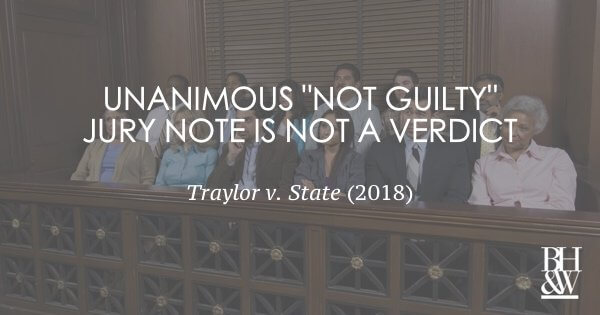Jury Trial Sentencing in Texas
 Every level of criminal offense in Texas has a corresponding punishment range for the jury to consider. With the exception of enhancements or other minor differences, the Texas punishment ranges are as follows:
Every level of criminal offense in Texas has a corresponding punishment range for the jury to consider. With the exception of enhancements or other minor differences, the Texas punishment ranges are as follows:
- Class B Misdemeanor = 0-180 days County Jail and $0-$2,000 fine
- Class A Misdemeanor = 0-365 days County Jail and $0-$4,000 fine
- State Jail Felony = 6 months – 2 years State Jail and $0-$10,000 fine
- 3rd Degree Felony = 2-10 years Prison and $0-$10,000 fine
- 2nd Degree Felony = 2-20 years Prison and $0-$10,000 fine
- 1st Degree Felony = 5-99 years Prison and $0-$10,000 fine
A jury verdict on sentencing should be within the punishment range to the particular offense. But what happens if the jury deviates from the punishment range?
The Court of Appeals for the Seventh District (Amarillo) recently considered this scenario in Melton v. State. In Melton, the defendant was facing 2-20 years and up to a $10,000 fine if convicted. The jury returned a sentence of 15 years in prison and a $15,000 fine. Of course, the $15,000 fine was outside the punishment range.
The court of appeals wrestled with the option of remanding the case back to the trial court for a new sentencing hearing on BOTH the term of confinement and the fine or the fine only. Ultimately, the court reasoned:
Article 37.10(b) contemplates that a jury can assess more than one type of punishment, to-wit: “punishment that is authorized by law for the offense and punishment that is not authorized by law for the offense . . . .” Because this statutory provision contemplates the situation where the period of confinement is authorized by law and the amount of the fine is not authorized by law, we conclude the Legislature intended to allow the reformation of a judgment as to the issue of the fine only.
Accordingly, the COA remanded the case back to the trial court for a new sentencing hearing on the fine only. The term of confinement was sustained.










